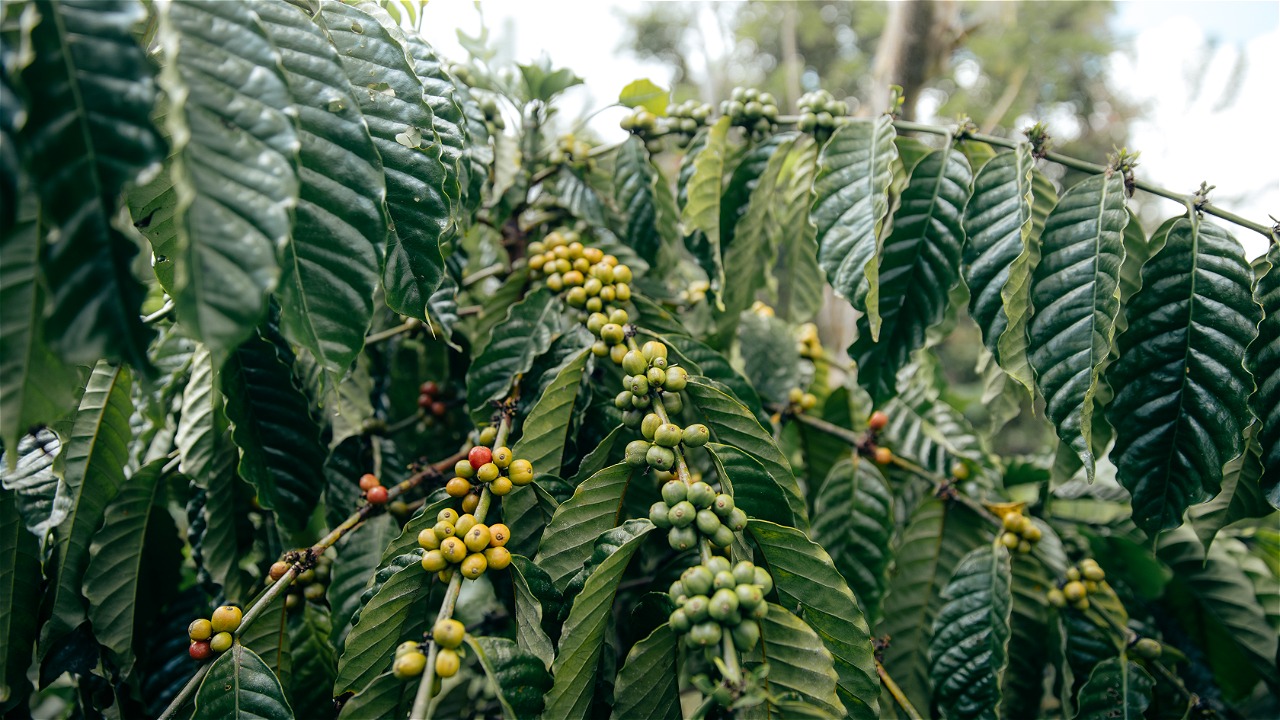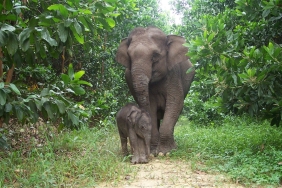BENGKULU FARMERS JOIN SUSTAINABLE AGRICULTURE FIELD SCHOOL PROGRAM
By: Hijrah Nasir
Sustainable agriculture field schools were introduced by FAO in 1989 in Indonesia as a result of the widespread outbreak of crop pests due to excessive use of pesticides. The field school learning process was adopted by WWF in Lampung Province with coffee, cocoa, rice, pepper and rubber crops. Since 2009, the sustainable agriculture field school program has touched 2,047 farmers in 27 villages, 3 districts in Lampung Province, namely West Lampung, Tanggamus, and West Pesisir, and 1 district in Bengkulu Province, namely Kaur Regency.
The field school program in Bengkulu Province began in 2017 with 70 participants. After the field school training, Training of Trainers (ToT) was conducted for participants to recruit prospective field school facilitators from the villages. The implementation of ToT for agricultural field school guides started from February 12, 2018 to March 9, 2018 with a total of 15 farmers from 3 villages, namely Sukajaya Village, Trijaya Village, and Bukit Endah Village.
Learning in the first week is adult education (POD) material, with learning principles including experiencing, expressing, analyzing, concluding, and applying. Then the facilitator opened a question and answer room to find out the extent of the participants' understanding of the learning flow material from experience by emphasizing the following points. First, the conclusion of adult training refers to the daily experience of the participants. This will facilitate farmers' understanding. Secondly, usually farmers in dealing with agricultural problems only adhere to the process of experiencing, concluding and applying, this will decide the level of knowledge of farmers. Third, when a training uses a perfect flow of learning from experience, experiencing, expressing, analyzing, concluding, applying will get more critical participants, knowledge will continue to develop. Fourth, participants will better understand the challenges that arise and be able to solve them.
Participants began to receive training on plant cultivation in the second week. The cultivation of crops developed in these 3 villages is not doniman, so prospective facilitators need a general understanding of cultivation. In general, plantation crop cultivation requires soil fertility (ph 6), balanced ecosystem support, for example, there are pests and pest control. If there is disease, then there is disease control. To support cultivation, prospective facilitators must have the skills to make liquid organic fertilizer and compost through the development of local micro organisms. In these 3 villages, most farmers grow crops with rubber, coffee and cacao as the main commodities.
In addition to receiving training on sustainable cultivation patterns, prospective facilitators also learn about livestock development, especially goats, which have been providing additional income for farmers. The combination of plantation crop cultivation with goats will be a mutually supportive and integrated business. Goat feed comes from coffee or pepper shade plants and goat manure is used to make compost that can fertilize their gardens. Some of the things learned in this training include making goat cages, goat diseases and their treatment, and making fermented feed.
In addition, prospective field school facilitators also learned about facilitation at the village and group level using the PRA (Participatory Rural Appraisal) method. Through this method, farmers can identify problems encountered and can plan and implement targeted field schools, discuss the rules in field schools and their rights and obligations. Women's participation was also emphasized in the implementation of the field school. The aim of this activity is to show the agencies and village officials the importance of women's participation, especially women farmers in cultivation businesses and their involvement in village decision-making.
In this PRA, field school participants learned to make coffee farm transects by looking at coffee pruning conditions, protective conditions, percentage of pest and disease attacks, farm sanitation, soil and plant fertility, other plant-disrupting organisms, and natural enemies found. In addition, a seasonal calendar of activities was also created to explore problems and potentials related to the activities of the farming community, both community economic activities such as agriculture, plantations, carpentry and others as well as social community activities such as wedding parties, grief, religion, mutual cooperation and others. In the last session, participants developed a learning contract that will guide them in facilitating sustainable agriculture field schools in the village.
After the field school, the implementation of the training that has been carried out is the goat field school which has started since March 24, 2018. This training is carried out in 3 villages with an average number of participants of 22 people in each village with the current material is making livestock fermented feed. In its implementation, the Trijaya Village government welcomed this activity and supported the effort by purchasing an animal feed chopping machine through funds from the 2018 APBDes.





